Search Results
Showing results 21 to 40 of 71

Is That DNA in My Food?
Source Institutions
In this activity, learners extract DNA from wheat germ. Use this activity to introduce learners to DNA, biotechnology and genetic engineering.
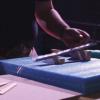
Chain Reaction II
Source Institutions
In this hands-on activity, learners use an assortment of (mainly household) items to complete Rube Goldberg-type challenges.
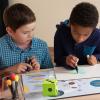
Exploring the Solar System: Mission to Space Board Game
Source Institutions
In this tabletop board game, players will represent a team of scientists and engineers sending a spacecraft on a mission to space.
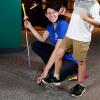
Exploring the Solar System: Stomp Rockets
Source Institutions
In "Exploring the Solar System: Stomp Rockets," participants learn about how some rockets carry science tools—not scientists—into space, and how a special kind of rocket called "sounding rockets" can

Shake it up with Seismographs!
Source Institutions
In this activity, learners explore the engineering behind seismographs and how technology has improved accurate recording of earthquakes.
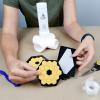
Exploring the Universe: Pack a Space Telescope
Source Institutions
Space telescopes can offer us better, clearer views of the universe (and of our own planet) than Earth-based telescopes can, but getting these large, delicate pieces of equipment into orbit is tricky.
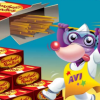
Spaghetti Strength
Source Institutions
In this activity on page 7 of the PDF, learners explore how engineers characterize building materials.
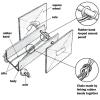
Roving on the Moon
Add to list DetailsIn this design challenge activity, learners build a rubber band-powered rover that can scramble across the room.
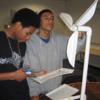
Whirling Windmills
Source Institutions
In this activity, learners are challenged to design and construct a windmill to harness the power of wind.

Design a Seed
Source Institutions
In this activity, learners will design a seed and test how it travels. Learners will use the Engineering Design Process to create a seed which can move from place to place.
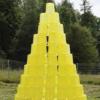
Tall Tower Challenge
Source Institutions
In this activity, learners will use their chosen material to build the tallest tower possible in under three minutes. This activity uses problem solving and fine motor skills to challenge learners.
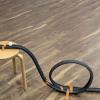
Roller Coasters
Source Institutions
In this activity learners will build roller coasters and test them using small balls or marbles.

Balancing Sculptures
Source Institutions
In this activity, learners will use a variety of household and/or natural objects to design a sculpture that balances from a single point.

Make Pooter
Source Institutions
In this activity, learners will explore engineering to construct an insect collecting tool (insect aspirator). The pooter uses suction to safely collect smaller insects that nets miss or may injure.
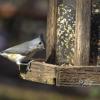
Bird Feeder Challenge
Source Institutions
In this activity, learners are challenged to build a bird feeder using recycled materials from home and are encouraged to problem solve during the extensions.

Under Pressure
Source Institutions
In this simple activity, learners discover how a mere piece of paper can be used to hold up the weight of a heavy book.
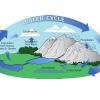
Moving Without Wheels
In a class demonstration, learners observe a simple water cycle model to better understand its role in pollutant transport.

What Color is Your Air Today?
Learners develop awareness and understanding of the daily air quality using the Air Quality Index (AQI) listed in the newspaper or online.
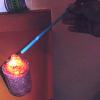
Hot Stuff!: Creating and Testing for Carbon Dioxide
In this demonstration, learners observe vinegar and baking soda reacting to form carbon dioxide (CO2) gas.
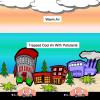
Turning the Air Upside Down: Convection Current Model
Learners see convection currents in action in this highly visual demonstration. Sealed bags of colored hot or cold water are immersed in tanks of water.
